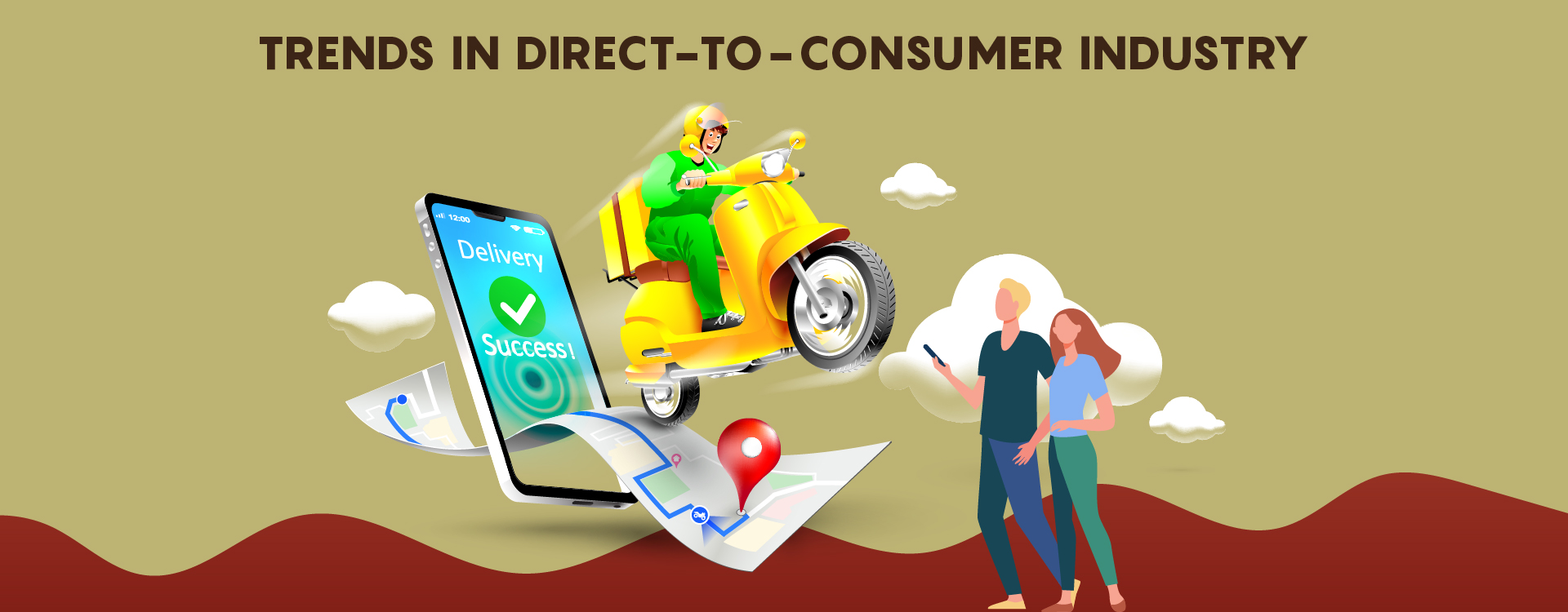Understanding direct-to-consumer retail or D2C (DTC) is vital for new people entering the workforce and for a beginner corporate entrepreneur. The definition of the direct-to-customer model is the promotion and sale of a product that removes all intermediate channels, such as market middlemen, physical stores and third-party retailers. It directly gives customers the products from the manufacturer.
While D2Cs can be found in every vertical area, from cars and airlines to fertility tests and medication, this model is widely used in the fashion, consumer products, and everyday goods industry.
With less third-party reliance, reduced contract negotiations, and less constrained enforcement and branding methods in the D2C model, it’s an attractive option for emerging and traditional brands looking to expand.
D2C is on an Upward Trend
The direct-to-consumer market (D2C) has been multiplying by double digits for many years. It is expected to grow by 19.2% in 2021. Data from the pre-COVID era showed a promising future of the segment. The pandemic further bolstered the demand for direct consumer access due to the digitization boom born out of uncertainties and problems in the supply chain.
New businesses are not the only ones adopting technological advancements in their business models. Businesses operating on traditional channels, including multinational brands such as Heinz and PepsiCo, have also opened new communication channels with their customers where they have activated direct relationships with them.
Direct-To-Consumer (D2C) Segment is the New Hub for Jobseekers in 2021
In the US, Facebook launched a new Facebook Store feature, integrated directly into Shopify. Sports giant Adidas agreed to a joint venture with Storr, Inc. to attract more customers and boost the company’s sales channel. It started a new Social Selling App that makes it easy for any user to open their store from their phone and take a 6% commission with each direct sale.
E-commerce and retail are the most critical parts of D2C. The segment grew to more than 1.6 billion app transactions in 2019 and will expand even more in an increasingly digitising market like India. With these emerging markets worldwide and their potential expansion plans in India (the second-largest market globally), D2C companies are looking for new Indian talent to drive their projects in the market.
‘‘
By eliminating the middleman through D2C, brands can reduce distribution costs and better control profit margins.
Trends that are opening up more opportunities for the New Workforce in D2C
Consumer expectations have reached the highest level
With the help of D2C services, the customer experience has been dramatically improved, and customers now have high expectations from service providers. Brands are proposing products in a highly competitive environment.
According to a survey conducted by D2C organisations, 61% of consumers want to share more information with the brand for a better shopping experience, and 54% of consumers want to receive a personalised cut within 24 hours of the first association with the label.
Direct communication with the consumer in D2C means having an entire relationship with the customer
By using all the data to create a unique, personalised, more efficient and best-performing experience, companies can access big data to deliver the best service. The D2C strategy has enabled the development of new sources of income by:
New affiliations
New versions of the product
Custom strategy
These improve user engagement more effectively than other channels.
Increasing profit margins
By eliminating the middleman, brands can reduce distribution costs and better control profit margins. Inefficient distribution can directly translate into additional revenue for customers, avoiding potential physical channels to hire other partners and conserve business resources.
Digital marketing potential
Brands are entering the digital space and starting to take complete control of all channels, regulating branding and conversion activities across channels and ultimately narrowing the circle to achieve their communication.
To fulfil customer demands, capture new markets and deliver state of the art solutions, companies are hiring left and right. Giant conglomerates in India, including Unilever, Pearson Group, Amazon, Flipkart, and new companies like boAT and Zivame, are onboarding new talent to excel and expand their operations substantially. It is indeed the right time and occasion for you to get on the growth bandwagon of the D2C boom in India.




